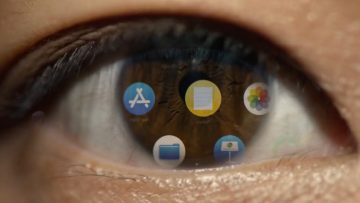The FBI has seemingly admitted defeat to Apple in its quest to force the company to build an insecure version of its OS to load onto the iPhone owned by San Bernardino shooter Syed Farook. And that might be a good thing. However, a public court battle between Apple and the FBI might have been a lot better, even if Apple risked being forced to unlock the iPhone.
DON’T MISS: Apple stared down the FBI and won
Talking to CNBC, cyber security specialist John McAfee warns that Apple might not like the FBI’s new alternative method for unlocking the iPhone 5c, even though they’ll be doing so without Apple’s help.
“Apple and Tim Cook are not going to be happy with what the FBI has come up with,” he said. “It’s not worse than a universal master key, but it’s much much easier to get into a phone with it.”
McAfee, who’s been known lately for his rather erratic remarks and behavior, did not elaborate on the matter, but he said he’s not “fond of it.” His security expertise is still worth paying attention to, regardless of the crazy things he might say or do. In this case, he also told CNBC that the FBI realized that “hackers can [access the iPhone], and that’s what’s happened here.”
Ironically, the FBI’s actions also help Apple’s case: If there’s a security flaw in the iPhone – like the proposed GovtOS the FBI wants from Apple – someone will find it and use it to harm the safety of consumers.
It’ll certainly be interesting to see whether the FBI will disclose the security hole to Apple. It doesn’t have to do it, if it chooses not to pursue the matter in courts. It’s also unclear whether the technique it’s using to unlock the San Bernardino iPhone would also work on newer iPhones.
The agency wants to use a brute force attack to crack the PIN of the iPhone, combined with a memory mirroring technique that lets it copy the entire contents of the storage to avoid it being deleted in case the device is set to delete itself after 10 wrong PIN attempts.








